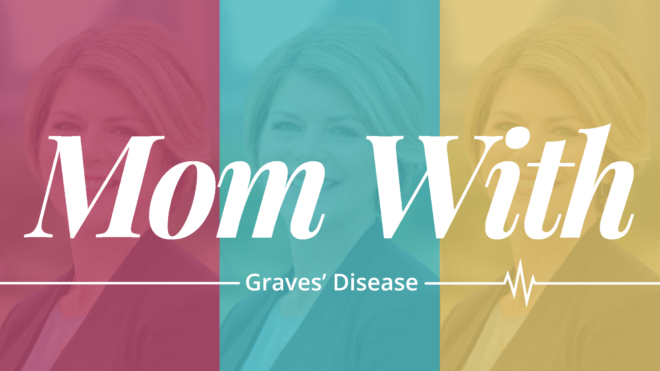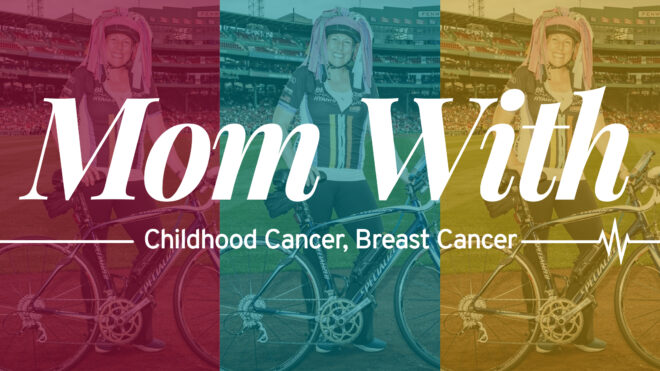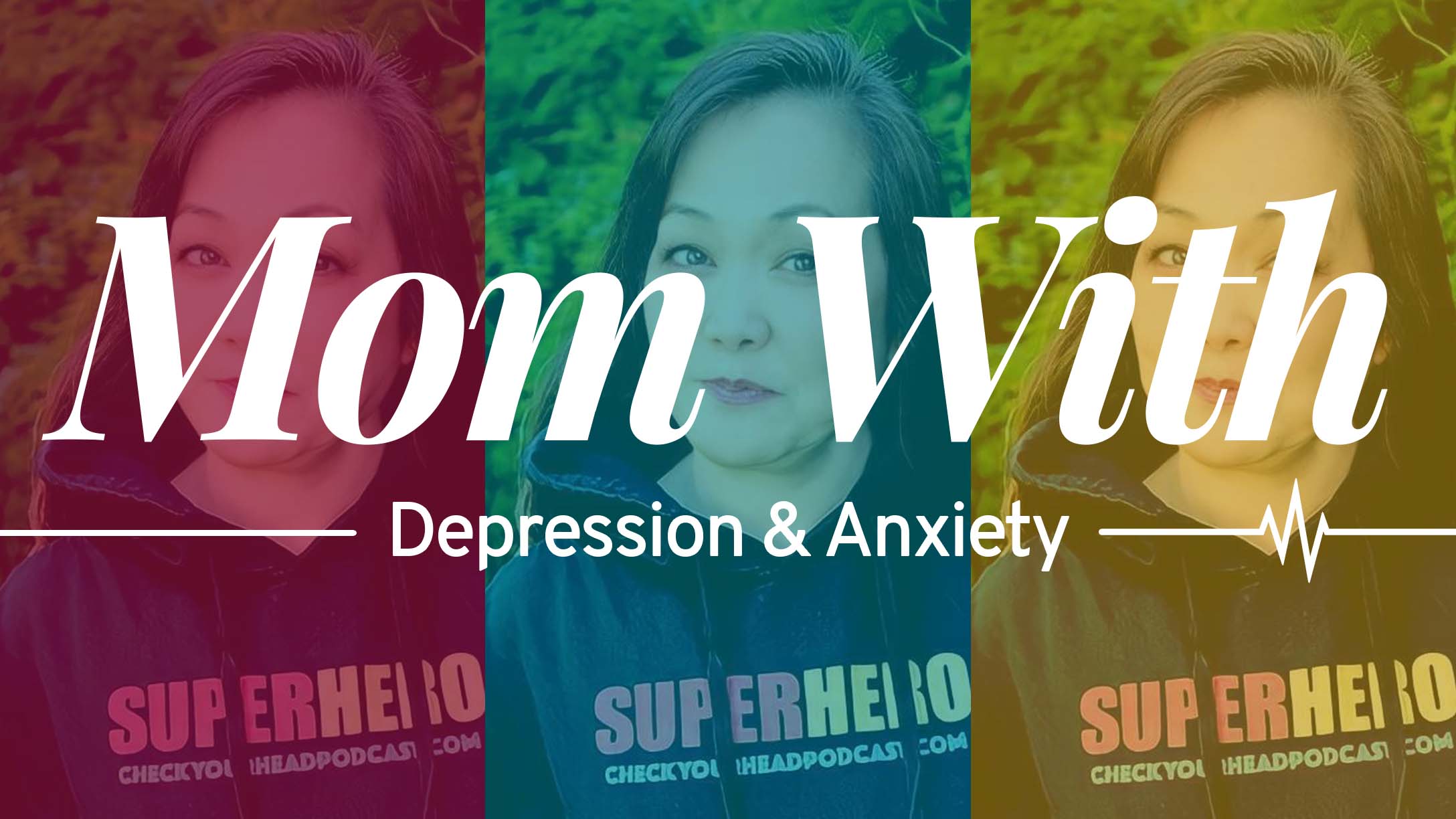
Our monthly column MOM WITH aims to redefine what it means to be a "normal" mother by focusing on how it feels to live with a mental disorder. We see you, we hear you, and we're in this together.
When Mari Fong’s depression and anxiety became so severe during her final semester of college, she reached out for help from her parents. Her mom’s response was, “What do you have to be depressed about?”
Mari, along with 280 million people in the world, suffers from depression.
“I first started noticing depression when I was in college, sometimes occurring during my menstrual cycle,” she says. “I’ve discovered this is a condition called premenstrual dysphoric disorder. This goes beyond PMS or premenstrual syndrome because the depression was severe. During this time, I remember not wanting to be around people, losing my appetite, not [being] able to focus on my studies, and feeling really depressed to the point of not wanting to do anything.”
Soon afterward, even though Mari's parents could not understand the cause of her depression, she started seeing a psychiatrist and was prescribed an antidepressant. She felt better, was back on her feet, and vowed never to let herself feel this way again.
Mari, however, continued to suffer at the hands of trauma.
But despite some especially tough times – including the deaths of her father and younger brother and when she divorced and went on to raise two daughters on her own – she didn’t come across bad depression again until she approached menopause.
As Mari approached menopause, she started noticing changes in her mood once again.
“During that time, I had a career that I loved but worked on a lot, most of my days and nights,” she shares. “I noticed (I was) getting more and more fatigued, waking up some mornings feeling like my feet weighed 50 pounds each, just dragging myself along. Sometimes I didn’t want to socialize or talk to others and also had symptoms of menopause like hot flashes, night sweats, and roller coaster emotions.”
Being a parent while experiencing depression felt nearly impossible for Mari. Luckily, her children were older and away at college.
“Both my daughters know about my depression and anxiety,” Mari says. “Because it happened when they were older, they knew about Mom going to therapy, seeing a psychiatrist, and all the challenges of being depressed. It also affected them on a daily basis, the constant worry and seeing my anxiety go through the roof.”
Once a parent's child is at the age when they are aware of mental health struggles, this can alter the situation.
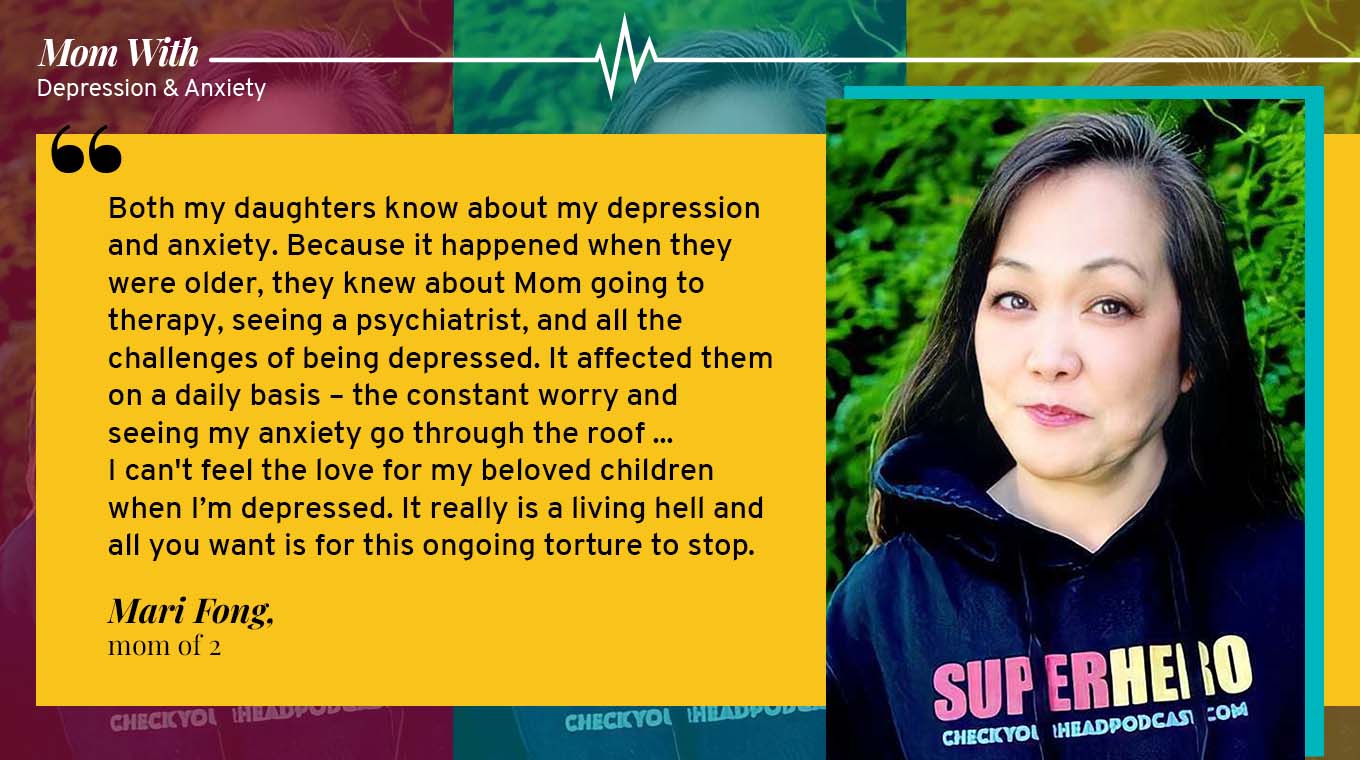
“Family dynamics can change in many different ways after a child learns about a parent’s mental health struggles,” says clinical psychologist Dr. Emily Guarnotta. “The ways in which the relationship changes depend on the dynamics of the relationship before the child learns of their parent’s struggles. For example, some children or teens may feel responsible for their parent’s struggles or adopt a rescuer role, where they feel they must ‘save’ their parents. This may lead to overcompensating by taking on more responsibilities at home and encouraging the parent to do less.
"Another child may resent the parent and physically and emotionally distance themselves because of this. Others may perceive mental illness to be a sign of weakness and feel neglected by their parent’s health struggles. This could lead to being more independent because they feel they cannot rely on their parents.”
It is essential that parents speak with their children about mental health at a young age.
It is important that we express our emotions, both good and bad, for our children to better develop and understand how the brain works. This can go a long way toward a child having a better understanding of mental health struggles that you, or even they, may go through. We need to start the conversation young.
Guarnotta says we should explain that a mental health illness is a health condition, just like diabetes or high blood pressure.
“This can help them understand that their parents are still their parents," she says. "Sometimes parents may have a harder time carrying out family responsibilities because of their condition, but putting a plan in place for these times can offset this stress.”
At one point while her daughters were away at college, Mari's depression got so bad that she had to arrange to have family members take care of her.
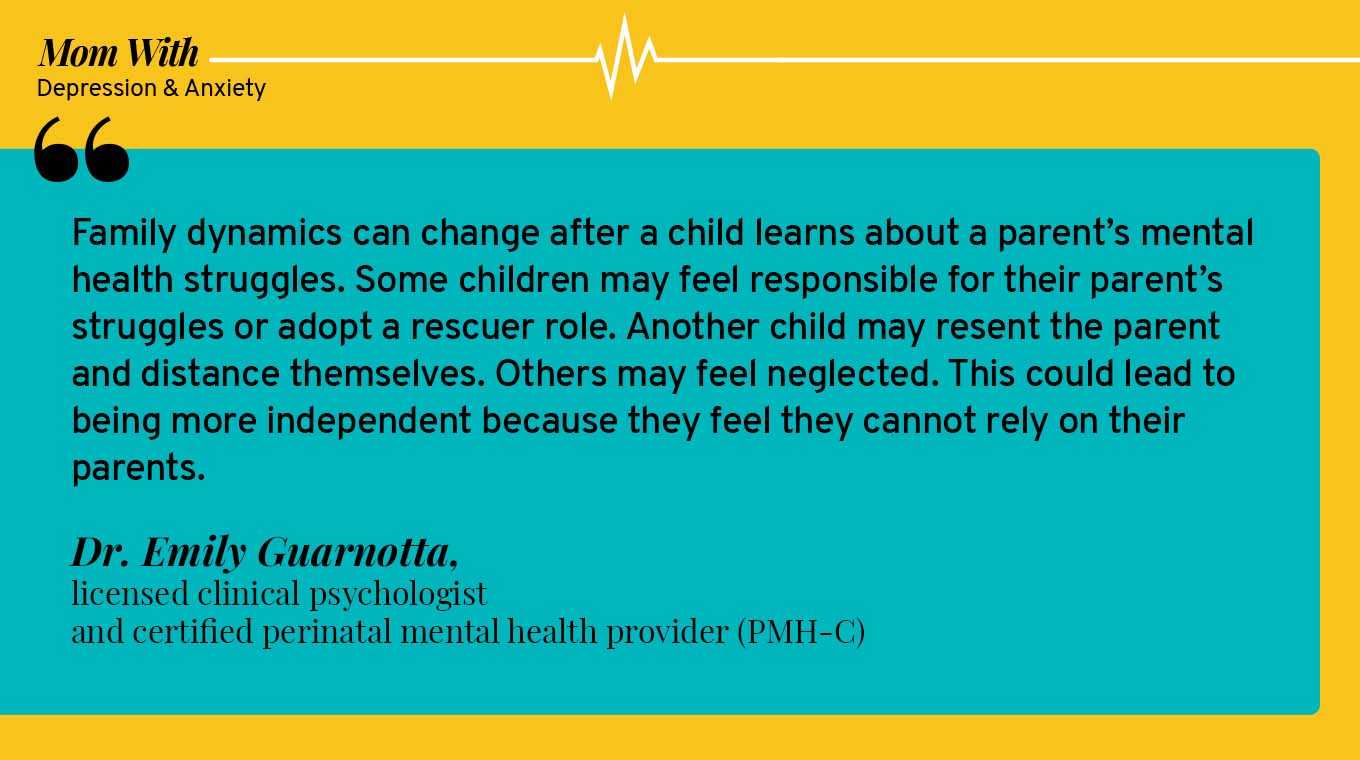
She finally got better with the help of the right antidepressant until she decided to try to wean herself off her medicine. She was doing well for a year and a half and then fell into another bout of deep depression after a short outpatient surgery.
“This depression lasted every day for another 1.5 years,” Mari shares. “I went back on the antidepressant, but it took a long time for it to start working again. My oldest daughter brought me into her home and took care of me for a month, then my mother took me in for another month. I lost 37 pounds during this time, from 130 pounds to a scary-skinny 93 pounds. I had lost my appetite and had no real desire to live.”
Soon afterward, she got better. The combination of an antidepressant, bioidentical hormone therapy, and vitamin supplements helped Mari once again feel like herself.
A good day for Mari is when she feels she is doing all the right things for her mental health.
She feels positive, optimistic, and hard-working. She loves to travel and spend time with family and friends. Mari has even found a way to use her experience with depression and anxiety for good. She started a podcast titled CHECK YOUR HEAD: Mental Help for Musicians.
“As a former music journalist and life coach for musicians, I began the podcast to normalize the conversations on mental health, to encourage others to ask for help, and to provide solutions for recovery on checkyourheadpodcast.com,” Mari says. “The podcast is where notable musicians and experts share their mental health solutions for wellness. It’s a good feeling to know that I may be improving the lives of others with mental health challenges and possibly even saving lives.
"Trust me, I know what it’s like and can empathize with others," she shares. "My hope is that we can normalize the conversations on mental health, have others step into the light and live their best lives.”
A bad day for Mari is not wanting to get out of bed to do anything except go to the bathroom.
“Being clinically depressed is a horrible, sad existence with negative thoughts running through your mind 24/7,” Mari says. “It’s hard to do anything, and you care about nothing. Things that I normally love like music and comedy mean nothing to me. Nothing is funny anymore. Music doesn’t move me at all. I can’t even feel the love for my beloved children when I’m depressed. It really is a living hell, and all you want is for this ongoing torture to stop.”
She admits that some days she hated feeling like a burden on her family. This type of “mom guilt” is all too common for mothers who suffer from depression and anxiety.
“Mom guilt is an emotion that has evolved over time and helps promote human survival,” Guarnotta explains. “For thousands of years, mom guilt has helped mothers remain focused on caretaking, which is necessary for the survival of the species. Mom guilt helps keep mothers close to their infants and children, which protects them from predators and ensures that their basic needs are fulfilled.
"Too much mom guilt is detrimental, as it can lead to depression, anxiety, and lower satisfaction in motherhood and life," the clinical psychologist contines. "Ideally, an optimal level of mom guilt is somewhere in the middle. We want to feel drawn to care for our children and be present for them, but we also need to be able to care for our own needs in order to be the best versions of ourselves.”
As anyone living with mental health struggles understands, living with depression or anxiety can feel like a constant battle.
Some days are good, some days are bad, and some days are just there, without any specific emotion. As mothers living with these struggles, it can be even harder to function without feeling the constant judgment from society about what being a “good mom” means.
“I see myself as a normal person since mood disorders happen to so many people. It’s important for our children to see us struggle sometimes, to talk openly about what’s going on, and to let them in on my mental health conditions,” Mari says.
“It’s important to accept help when needed as a parent, even when that help is coming from your own children. That was the toughest lesson for me as a parent and a 'giver.' In fact, asking for help is a sign of bravery and we should all recognize it as that.”
What often defines people is their ability to be true to themselves and to live an authentic, honest life. That is what Mari and many mothers who struggle with depression and anxiety continue to do each day of their lives.
“There’s so many facets of my personality that define me; my mood disorder is just one facet,” Mari says. “Therefore, when someone sees me, they see the whole of me, which is someone who is brave, open, caring, and wants to help others as a mental health advocate. I just so happen to also live with depression.”

